Faculty of Science News Archive
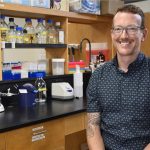
Faculty of Science
Protecting Canada’s number one crop through genetics
October 25, 2024 —
Dr. Mark Belmonte, professor at the department of biological sciences, in collaboration with other researchers at the Faculty of Science, is using genetics to develop a species-specific molecular fungicide and win the battle against sclerotinia.

Research and International
UM awarded $2.5 million to establish a new global innovation centre for plant resilience
October 22, 2024 —
Dr. Olivia Wilkins, Associate Professor, Biological Sciences has been awarded $2.5 million through the Natural Sciences and Engineering Research Council (NSERC) and Social Sciences and Humanities Research Council (SSHRC) Alliance Grant program, to fund the Canadian contribution to the new USD 16.3 million Global Center: Sustainable Plant Innovation and Resilience through International Teamwork (C-SPIRIT).
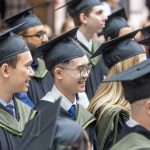
Medal-winning students share their journey, advice at Fall Convocation
October 17, 2024 —
Get to know these two students from the fall Class of 2024.

Faculty of Science
Dr. Kenneth Jeffries receives the Research, Scholarly Work and Creative Activities Merit Award 2023
October 11, 2024 —
Dr. Kenneth Jeffries, associate professor at the Department of Biological Sciences, recently received the Research, Scholarly Work and Creative Activities Merit Award 2023. He is among the three faculty members from Science who have received Merit Award 2023 in Life Sciences, Natural Sciences and Engineering (Dr. Sabine Kuss for Combination and Dr. Susan Cooper for Service).

Faculty of Science
Faculty of Science Teaching and Learning Innovation Award
October 10, 2024 —
The Faculty of Science Teaching and Learning Innovation Award recognizes and celebrates faculty members and instructors who demonstrate exceptional innovation in their teaching or learning practices at undergraduate or graduate level.
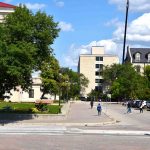
Faculty of Science
Faculty of Science Award of Excellence for Support Staff
October 4, 2024 —
Faculty of Science Award of Excellence for Support Staff recognizes support staff who have served their units with distinction by helping deliver on the commitment of the Faculty of Science to provide outstanding higher education and research.
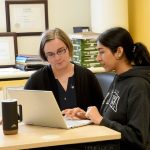
Faculty of Science
Dr. Sabine Kuss on receiving the Combination Merit Award 2023
September 27, 2024 —
Dr. Sabine Kuss, associate professor and associate head (graduate) at the Department of Chemistry, recently received the Combination Merit Award 2023.

Research and International
UM researchers receive more than $1.5 million infrastructure investment from the John R. Evans Leaders Fund
September 26, 2024 —
Eight new UM research project have received critical infrastructure funding from the Canada Foundation for Innovation John R. Evans Leaders Fund.
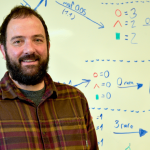
Faculty of Science
How human-caused environmental changes will change future biodiversity
September 24, 2024 —
The Arctic is warming up four times faster than the global average. This provides an opportunity for new predators such as killer whales to make their way into the Arctic, preying on narwhal, bowhead and beluga whales who have never experienced direct predation from them. This is one of the areas that Colin Garroway and his research team study at the University of Manitoba. Garroway is an associate professor at the department of biological sciences whose research revolves around biodiversity.
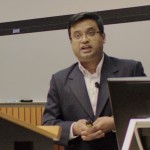
Rady Faculty of Health Sciences
Medscape: Canada’s First Nations Communities Call for Clean Water
September 23, 2024 —
Canada's First Nations Communities Call for Clean Water






